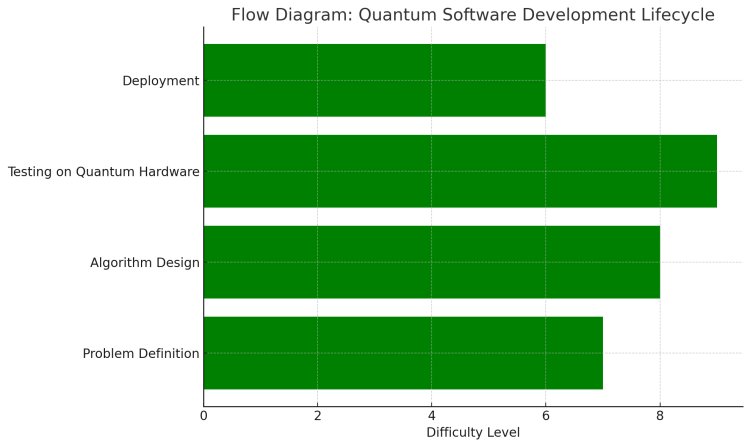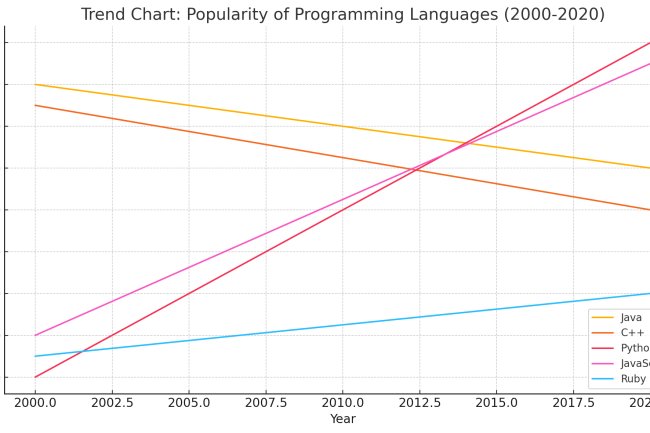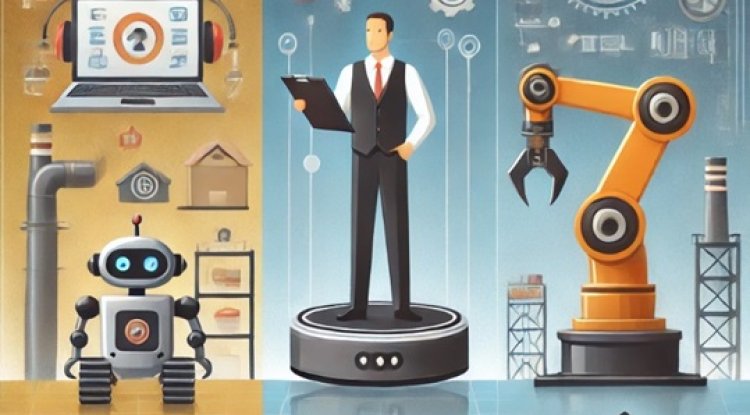Breaking Boundaries: How Quantum Computing is Redefining Software Engineering
As we look to the future, it’s clear that quantum computing will play a pivotal role in the next wave of technological advancements. The potential to revolutionize industries, solve complex problems, and enhance AI capabilities is immense. However, realizing this potential will require a new generation of software engineers who are not only skilled in traditional programming but also understand the principles of quantum mechanics. By embracing this challenge, engineers can help shape the future of software engineering and unlock the full potential of quantum computing.

The field of software engineering has always been on the cutting edge of technology, constantly evolving to meet the demands of an increasingly digital world. Over the past two decades, we’ve seen incredible advancements in computing power, the rise of cloud computing, and the integration of artificial intelligence (AI) into everyday applications. Yet, the next frontier in software engineering may very well be quantum computing—a technology that promises to revolutionize the way we approach complex problems, secure our data, and optimize systems across various industries.
I've always been fascinated by the potential of new technologies. My professional experience at companies like Merck, Bayer, and Zebra Technologies, has provided me with a unique perspective on the challenges and opportunities that lie ahead, I often contemplate the profound impact quantum computing will have on the field of software engineering.
In this blog, we will delve into the impact of quantum computing on software engineering, exploring how it will revolutionize algorithm design, enhance cryptography and cybersecurity, optimize complex systems, and the challenges it presents in software development. We’ll also look at the future of quantum software engineering, examining use cases across industries such as manufacturing, healthcare, banking, logistics, and even the automotive and space sectors. Finally, we’ll consider the role of AI in amplifying the potential of quantum computing, creating a powerful synergy that could drive the next wave of technological breakthroughs.
Quantum computing fundamentally changes the way we approach algorithm design. Traditional algorithms are designed to run on classical computers, where data is processed in binary form—bits that are either 0 or 1. Quantum computers, on the other hand, use qubits, which can represent both 0 and 1 simultaneously thanks to the principle of superposition. This allows quantum computers to process vast amounts of data in parallel, potentially solving problems that are currently intractable for classical computers.
Let's take a look how Quatum Computing will be impacting the industry. In the logistics industry, companies like DHL and FedEx rely on complex algorithms to optimize delivery routes, manage inventory, and reduce costs. Quantum algorithms could significantly enhance these processes by quickly identifying the most efficient routes, even as variables like traffic patterns and weather conditions change in real-time.
One of the most significant impacts of quantum computing will be on cryptography. Many of the cryptographic protocols that secure today’s digital communications rely on the difficulty of factoring large numbers—a task that quantum computers could perform relatively easily using Shor’s algorithm. This poses a significant threat to current encryption methods, necessitating the development of quantum-resistant cryptographic techniques.
In the banking industry, quantum computing could potentially break existing encryption protocols, making financial transactions vulnerable to cyber-attacks. To counter this, banks are investing in quantum-resistant algorithms that can withstand the power of quantum computers, ensuring that customer data and transactions remain secure.
Quantum computing’s ability to process and analyze massive datasets simultaneously makes it ideal for optimizing complex systems. This has implications for industries such as manufacturing, healthcare, and space exploration, where optimizing resources, reducing waste, and improving efficiency are critical.
In the manufacturing sector, quantum computing could optimize supply chain operations by analyzing vast amounts of data to predict demand, manage inventory, and reduce downtime. Quantum algorithms can help manufacturers achieve greater efficiency, reduce costs, and improve product quality.
While the potential of quantum computing is immense, developing software for quantum computers presents unique challenges. Quantum programming languages like Qiskit, Cirq, and Q# are still in their infancy, and writing code for quantum systems requires a different approach than traditional software development. Engineers must learn to work with qubits, quantum gates, and the probabilistic nature of quantum operations.
This flow diagram below outlines the lifecycle of quantum software development, from algorithm design to testing and deployment, highlighting the unique challenges at each stage. The diagram emphasizes the complexity of developing quantum software, which requires a deep understanding of both quantum mechanics and software engineering principles.
As quantum computing technology matures, the demand for quantum software engineers is expected to grow. Universities and research institutions are beginning to offer courses and programs focused on quantum computing, preparing the next generation of engineers for this emerging field. In the coming years, we can expect to see the development of more sophisticated quantum programming languages, tools, and frameworks, making it easier for engineers to develop quantum applications.
In the automotive industry, quantum computing could enhance the algorithms used in autonomous vehicles, allowing them to process and react to complex traffic environments more quickly and accurately than ever before.
The integration of AI with quantum computing could create a powerful synergy, leading to breakthroughs in fields like drug discovery, climate modeling, and financial forecasting. AI algorithms could be used to enhance the efficiency of quantum computations, while quantum computing could enable more sophisticated AI models that can process and analyze vast amounts of data in real-time.
NASA and other space agencies are exploring the use of AI-powered quantum computing to model complex climate systems and explore deep space. These models could provide more accurate predictions of climate change and help identify habitable planets beyond our solar system.
For those considering a career in quantum software engineering, it’s essential to stay informed about the latest developments in both quantum computing and AI. Pursuing education at top-tier universities that offer specialized courses in these fields, participating in interdisciplinary research projects, and gaining hands-on experience with quantum programming languages will provide a competitive edge.
As we look to the future, it’s clear that quantum computing will play a pivotal role in the next wave of technological advancements. The potential to revolutionize industries, solve complex problems, and enhance AI capabilities is immense. However, realizing this potential will require a new generation of software engineers who are not only skilled in traditional programming but also understand the principles of quantum mechanics. By embracing this challenge, engineers can help shape the future of software engineering and unlock the full potential of quantum computing.
If you enjoyed this blog, please feel free to share it on your social networks to spread the word. I'd love to hear your thoughts, so if you have any comments, suggestions, or recommendations, please don't hesitate to share them. If you liked the content, don't forget to click "like." And if you'd like to chat or have any questions, feel free to send me an email—I'm always happy to connect!
IBM. (2021). Qiskit: Quantum Computing for the Very Curious.
What's Your Reaction?


















